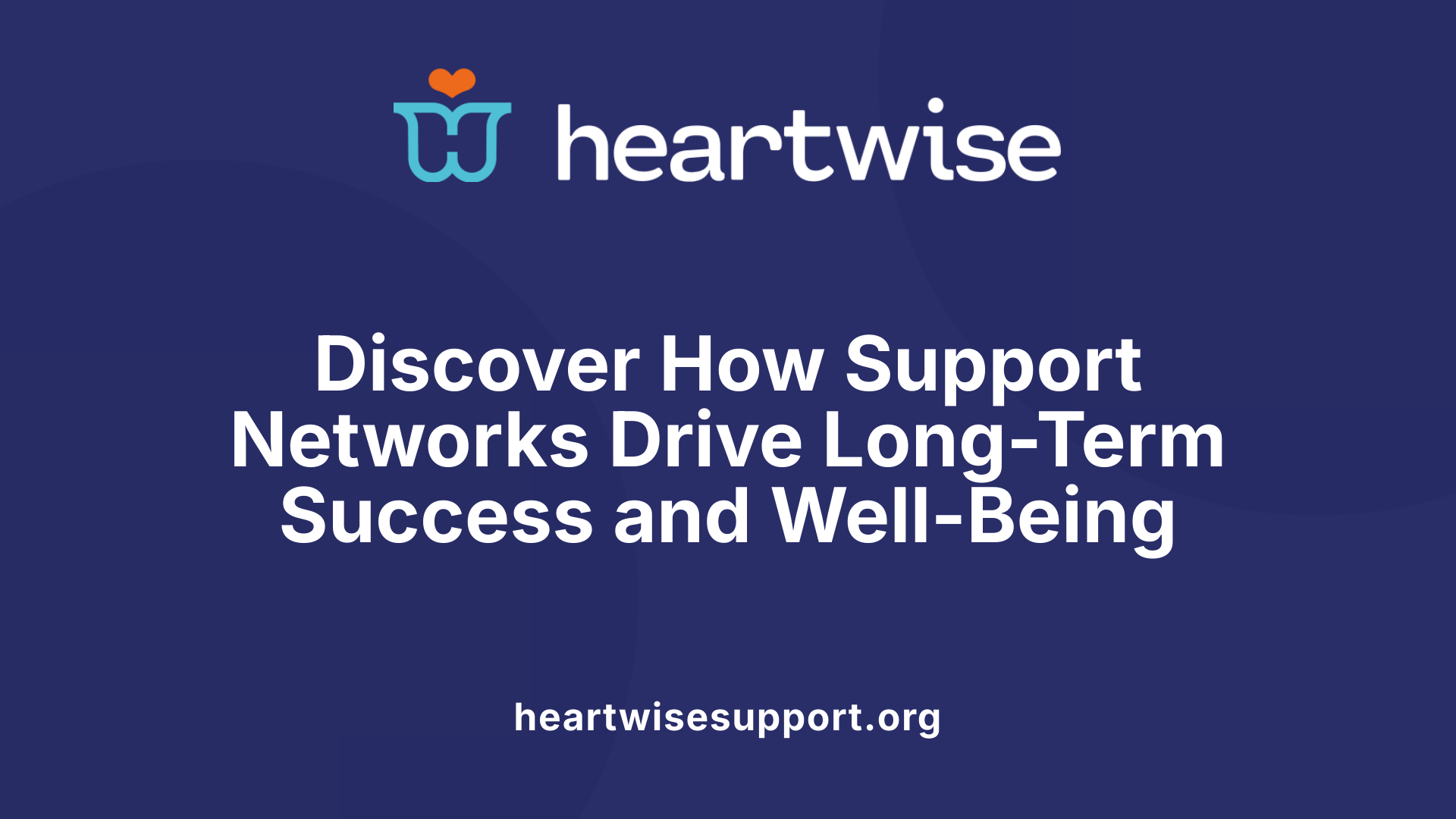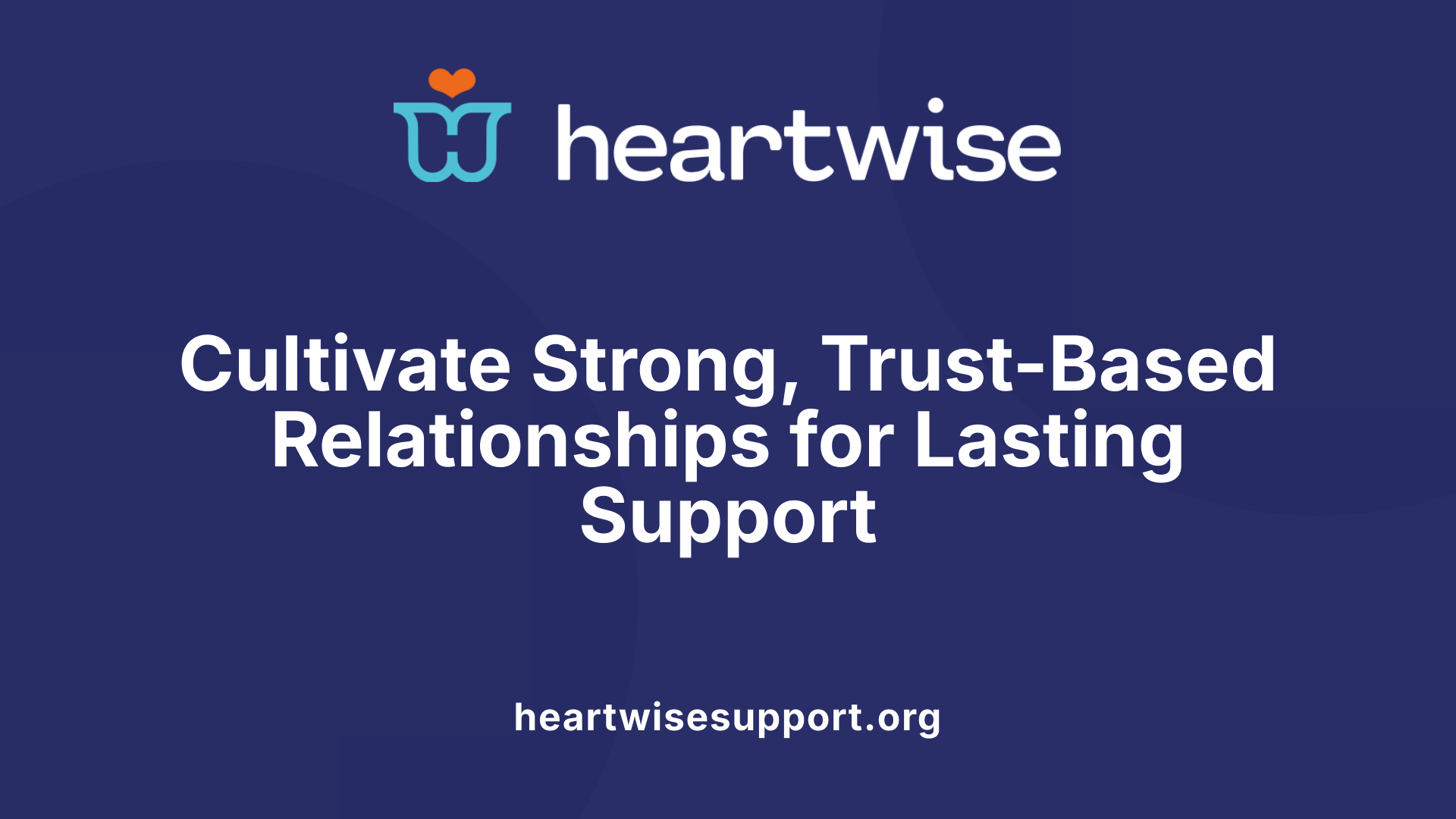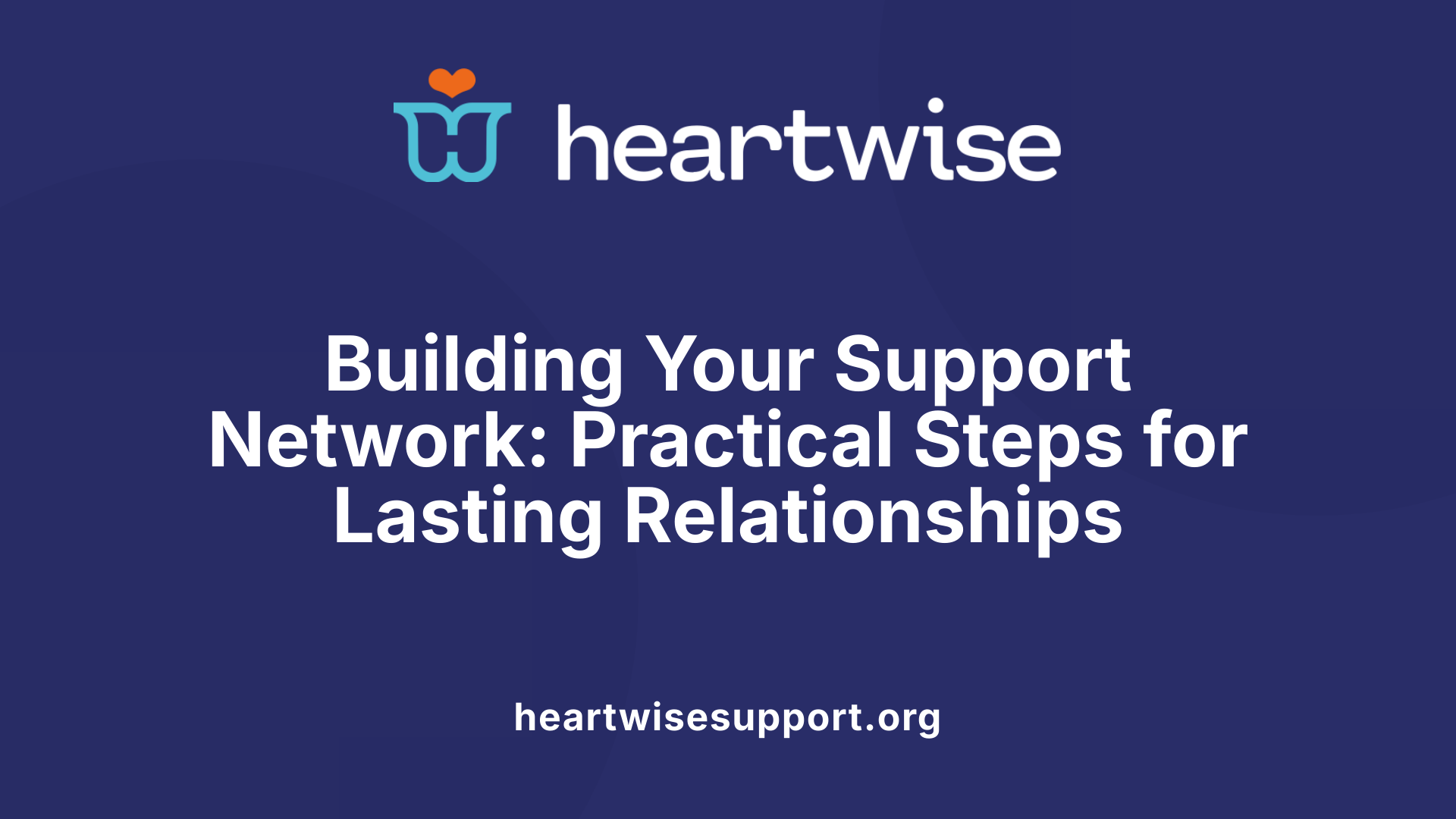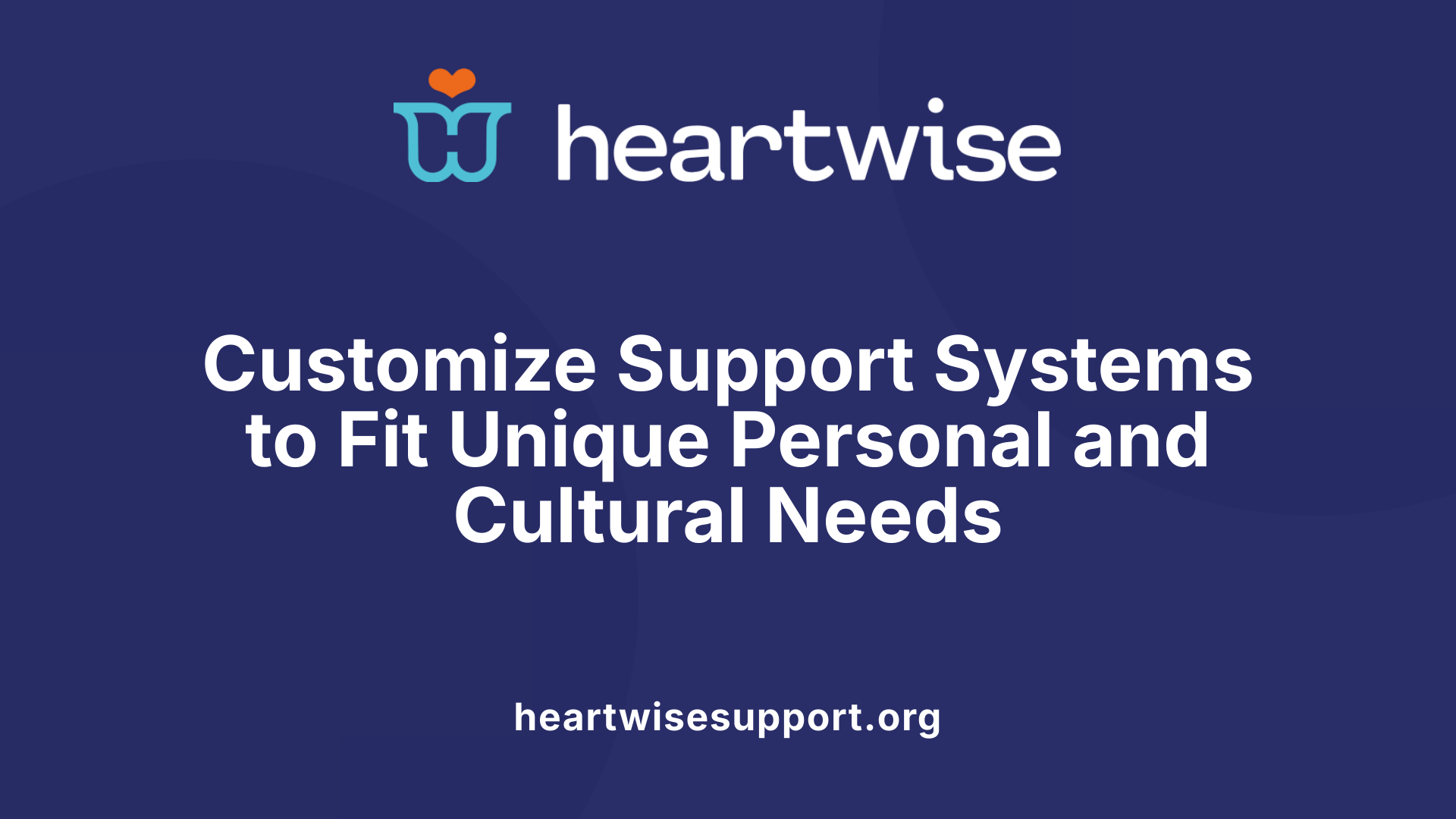Building Foundations for Long-Term Achievement
Establishing a robust support network is essential for enduring success across personal, professional, and recovery spheres. This article explores strategies, components, and maintenance plans to empower individuals in creating effective social systems that foster resilience, growth, and well-being over time.
Understanding the Significance of Support Networks
 Supporting relationships across community, mentorship, and social networks are vital components for achieving long-term success and well-being. These connections provide emotional encouragement, practical assistance, and valuable guidance that bolster resilience through life's challenges.
Supporting relationships across community, mentorship, and social networks are vital components for achieving long-term success and well-being. These connections provide emotional encouragement, practical assistance, and valuable guidance that bolster resilience through life's challenges.
Having a network allows individuals to receive help during stressful times, setbacks, or losses, and to celebrate successes with others. These relationships not only enhance mental health and self-esteem but also foster a sense of belonging within communities. Whether through family, friends, peers in support groups, or professionals, social support helps people develop the confidence needed to pursue personal and professional goals.
Community involvement—such as joining local clubs, volunteering, or participating in online groups—advances reciprocal relationships that strengthen social bonds. Mentorship programs, both formal and informal, expand opportunities by sharing insights, industry knowledge, and encouragement. These relationships teach vital social skills like communication, empathy, and responsibility essential for leadership and community engagement.
Research shows that strong social connections elevate physical health, reduce psychological distress, and promote positive behaviors. They create a foundation for individuals to grow, learn, and succeed over the long term. Through ongoing support and community participation, people develop resilience, a sense of purpose, and a broader perspective that fosters personal and societal progress.
How does community, mentorship, and social connection influence long-term success?
Community, mentorship, and social ties foster confidence, resilience, and personal growth. Mentors assist in goal setting and skill development, reducing risky behaviors and opening doors to new opportunities. They help individuals build essential social skills and expand their networks, which are crucial for career and personal development.
Additionally, social support improves mental and physical health, which are fundamental to sustained success. It promotes self-esteem, emotional stability, and a feeling of belonging. Strong networks also facilitate access to resources, advice, and encouragement, making it easier to navigate challenges.
Creating and maintaining these connections requires active effort, such as engaging in community activities, seeking mentorship, and cultivating genuine relationships. Effective communication, reciprocity, and resilience in fostering these bonds are vital—helping individuals not only reach their goals but also contribute meaningfully to their communities.
Ultimately, fostering strong community ties and mentorship opportunities builds a supportive environment where individuals can thrive, leading to long-term success that benefits both the individual and society.
Components, Types, and Advantages of Support Systems

What are the key components and types of social support systems?
Support systems are networks that connect individuals with resources, encouragement, and practical assistance. These include family, friends, healthcare providers, community groups, and support organizations.
Key components of these systems consist of social networks, formal and informal support groups, and social services. Social networks encompass personal relationships that offer companionship and emotional backing. Support groups, such as peer or therapy groups, provide shared experiences and understanding. Social services deliver structured help like counseling, health care, and community programs.
Different types of social support serve unique roles within these systems:
- Emotional Support: Offers empathy, reassurance, and comfort, helping individuals cope with stress.
- Informational Support: Provides advice, insights, and guidance, aiding decision-making and problem-solving.
- Tangible Support: Includes practical help such as transportation, chores, or financial assistance.
- Esteem Support: Motivates through encouragement, recognition, and positive feedback.
- Social Network Support: Creates a sense of belonging and community.
These components and support types are crucial in promoting mental and physical health, especially under stress or during recovery. Effective support systems foster resilience, improve overall well-being, and open opportunities for personal and professional growth.
Strategies for Building and Sustaining Support Relationships

How can individuals develop and maintain effective support relationships over time?
Developing and maintaining strong support connections is an ongoing process that involves intentional effort and proactive engagement. First, individuals should begin by assessing their personal needs—whether emotional, practical, or informational—and identify current relationships that can provide support.
Building a support system starts with trusted contacts like family and close friends. Sharing your goals and challenges openly helps establish a foundation of trust. From there, participation in community activities, such as volunteering, joining sports clubs, or attending local events, broadens your network and exposes you to new support opportunities.
Mutual support is crucial; offering help to others encourages reciprocity and reinforces relationships. Staying in touch regularly through calls, messages, or face-to-face meetings nurtures these bonds. Showing appreciation, celebrating successes, and practicing good listening deepen trust and connection.
Utilizing online resources also boosts support networks. Online forums, social media groups, and professional platforms like LinkedIn can connect you with a wider community sharing similar interests or experiences. Professional help from therapists or counselors provides personalized guidance, ensuring emotional and mental well-being.
To sustain these relationships, it’s important to communicate openly, respect boundaries, and stay involved consistently. Even when facing setbacks, patience and persistence are essential. Reaching out, staying engaged, and offering help to others create a resilient, mutually supportive environment.
In summary, developing effective support relationships involves identifying needs, engaging actively in community and personal connections, maintaining open communication, and leveraging both offline and online resources. This continuous effort builds resilience, enhances well-being, and fosters long-term stability.
Practical Steps to Develop a Support System

How can one build and strengthen a support network for long-term success?
Developing a robust support system is a proactive process that requires intentional effort and ongoing maintenance. Begin by identifying your personal needs and understanding which areas—emotional, practical, informational, or appraisal support—are most crucial for your well-being.
Start with your existing relationships—family, friends, colleagues—and assess their suitability for providing the support you need. Engaging in community activities such as volunteering, joining sports clubs, or participating in local events helps expand your network.
Online platforms are also valuable resources. Joining relevant online communities, social media groups, or professional networks like LinkedIn can connect you with individuals who share your interests or experiences.
Seeking professional help, such as therapists, counselors, or support groups like AA or NA, offers specialized guidance and emotional support, especially during recovery or challenging life transitions.
Once your network begins to take shape, establish a plan for ongoing support check-ins. Regular communication, whether through phone calls, messages, or face-to-face meetings, reinforces your relationships.
Expressing gratitude, supporting others' successes, and actively listening are vital practices that strengthen reciprocal trust. Setting boundaries ensures relationships remain healthy and supportive.
Integrate self-care strategies—like stress management, mindfulness, and hobbies—to maintain resilience. Recognize that building a support network is an ongoing process requiring dedication. Over time, a diverse, engaged support system can significantly enhance your mental and physical health, provide stability, and bolster your capacity to navigate life's challenges effectively.
Tailoring Support Networks to Specific Needs and Contexts
 Support networks are most effective when they are adapted to meet specific individual needs, especially in areas like mental health, recovery, or neurodivergence. Personalization begins with understanding what each person requires and involves collaborating closely with them to develop tailored support plans.
Support networks are most effective when they are adapted to meet specific individual needs, especially in areas like mental health, recovery, or neurodivergence. Personalization begins with understanding what each person requires and involves collaborating closely with them to develop tailored support plans.
In the context of mental health and recovery, a support system should include trusted friends, family members, healthcare professionals, and peer groups who understand the emotional and practical challenges faced. These networks focus on fostering open communication, emotional encouragement, and social connection, all while respecting cultural and personal differences.
For neurodivergent individuals, support environments and strategies are customized to accommodate sensory, communication, and scheduling preferences. Recognizing neurodivergence as a valuable aspect of identity promotes acceptance and empowerment rather than viewing it solely as a disorder.
Implementing a person-centered approach means involving individuals in choices about their support, respecting their autonomy, and promoting self-advocacy. This includes selecting preferred support mechanisms, using accessible communication methods, and ensuring the environment is inclusive.
Effective tailoring combines collaboration, cultural sensitivity, and adaptability—creating a support network that not only meets needs but also fosters confidence, independence, and a sense of belonging. Overall, a flexible, inclusive, and respectful support system enhances resilience and well-being across diverse personal contexts.
Sustaining Your Support System for Prosperity and Growth
Developing a resilient support network is an ongoing process that requires intention, consistency, and compassion. By understanding the components of social support, engaging actively in community, and tailoring relationships to meet specific needs, individuals lay a solid foundation for long-term success. Maintaining open communication, expressing gratitude, and seeking opportunities for mutual growth ensure these connections flourish over time. Recognizing the importance of social bonds not only enhances personal well-being but also creates a ripple effect, inspiring others to strengthen their own networks. Ultimately, a proactive and thoughtful approach to building and nurturing your support system is a key investment in your future prosperity and fulfillment.
References
- Developing Your Support System - UB School of Social Work
- The Ultimate Guide to Building a Robust Support Network - TechTrone
- Building A Support Network: The Key To Successful Recovery
- Cultivating a Strong Social Support Network | Psychology Today
- Navigating Success: Build Your Support System at InterCoast
- The Importance of Building a Supportive Network in Recovery
- How To Establish a Strong Support Network - Soulful Recovery
- Building a Support Network: The Value of Community and Mentorship
- How To Build A Support Network: A Guide For Neurodivergent ...











